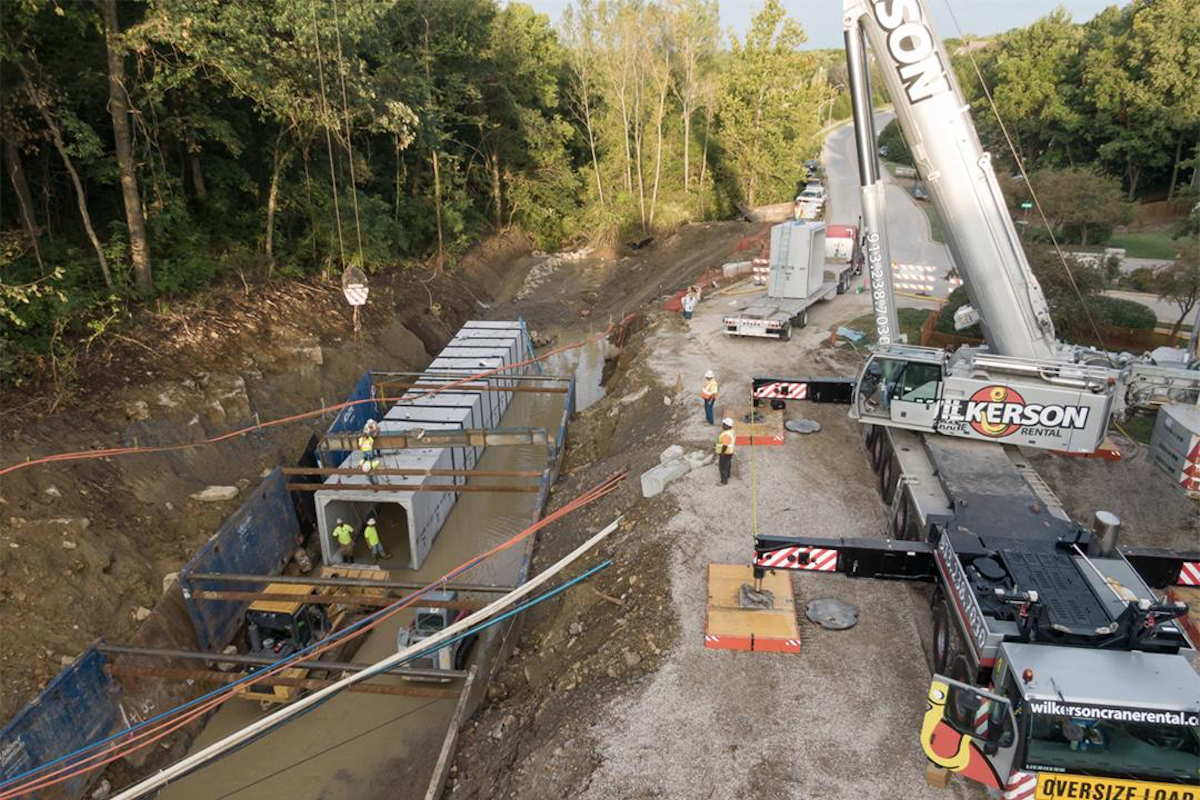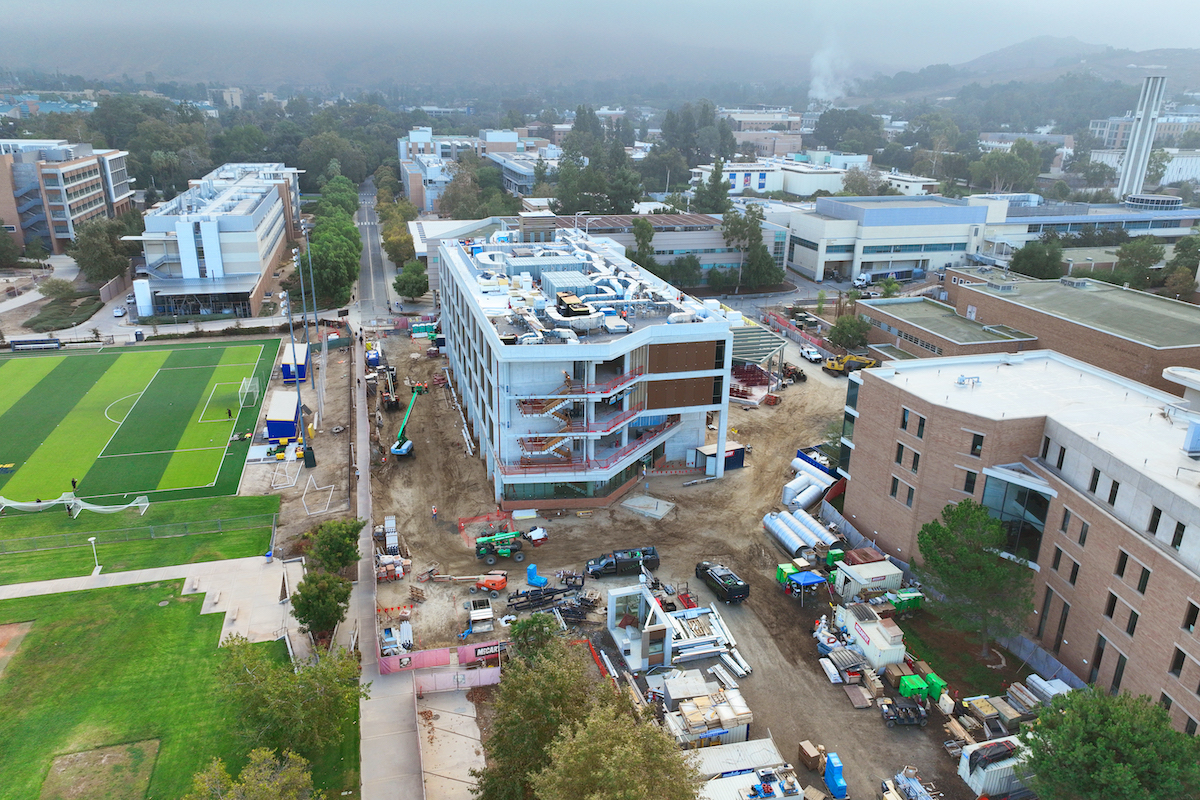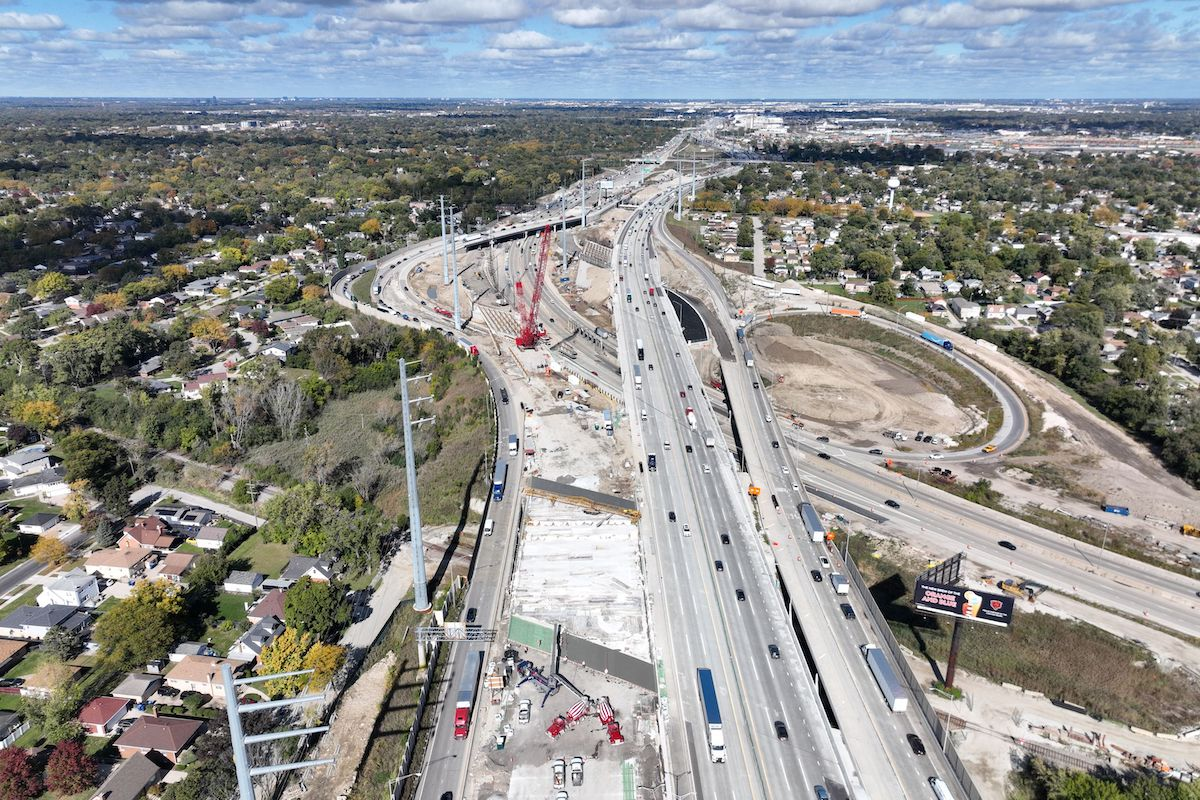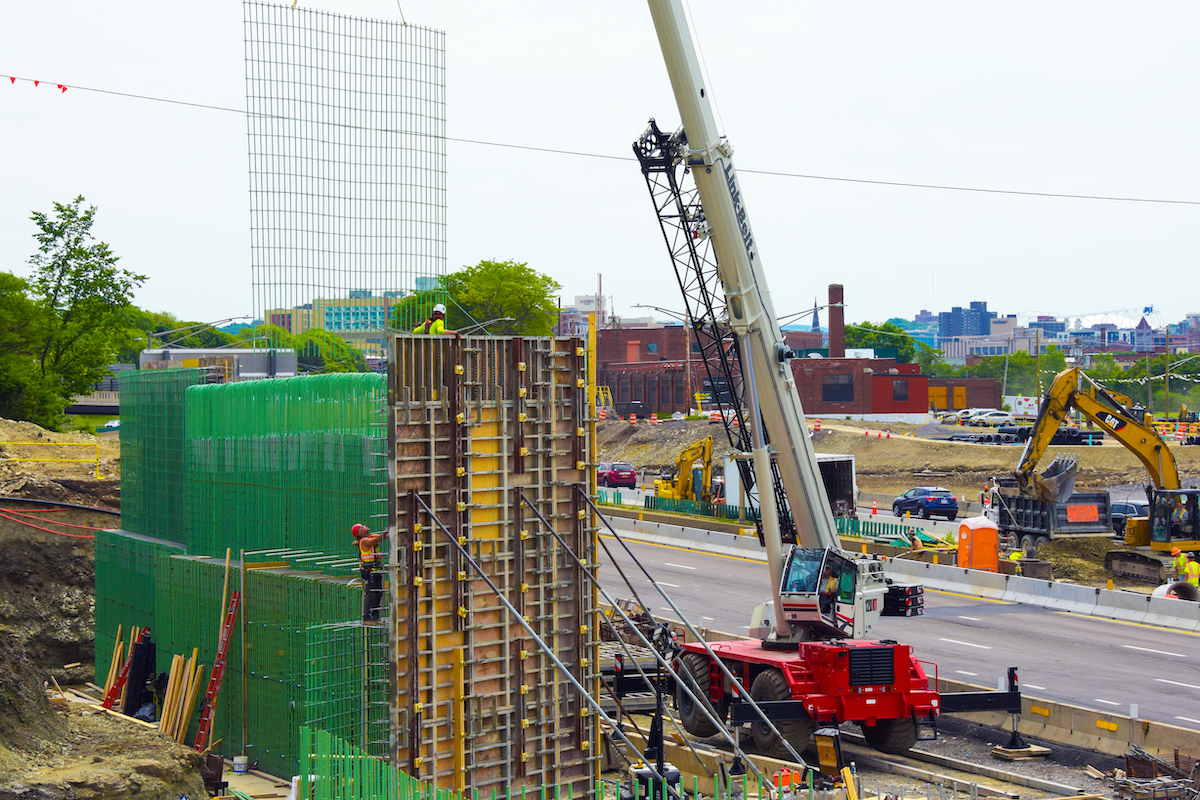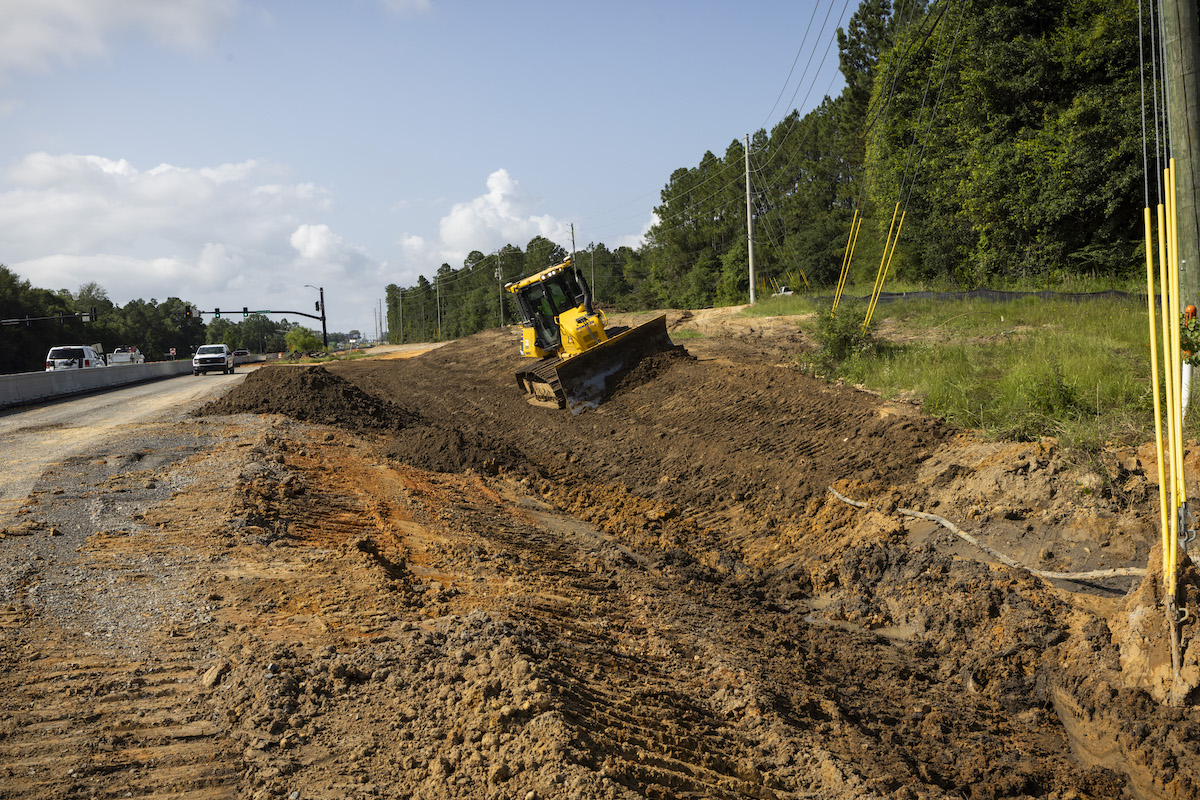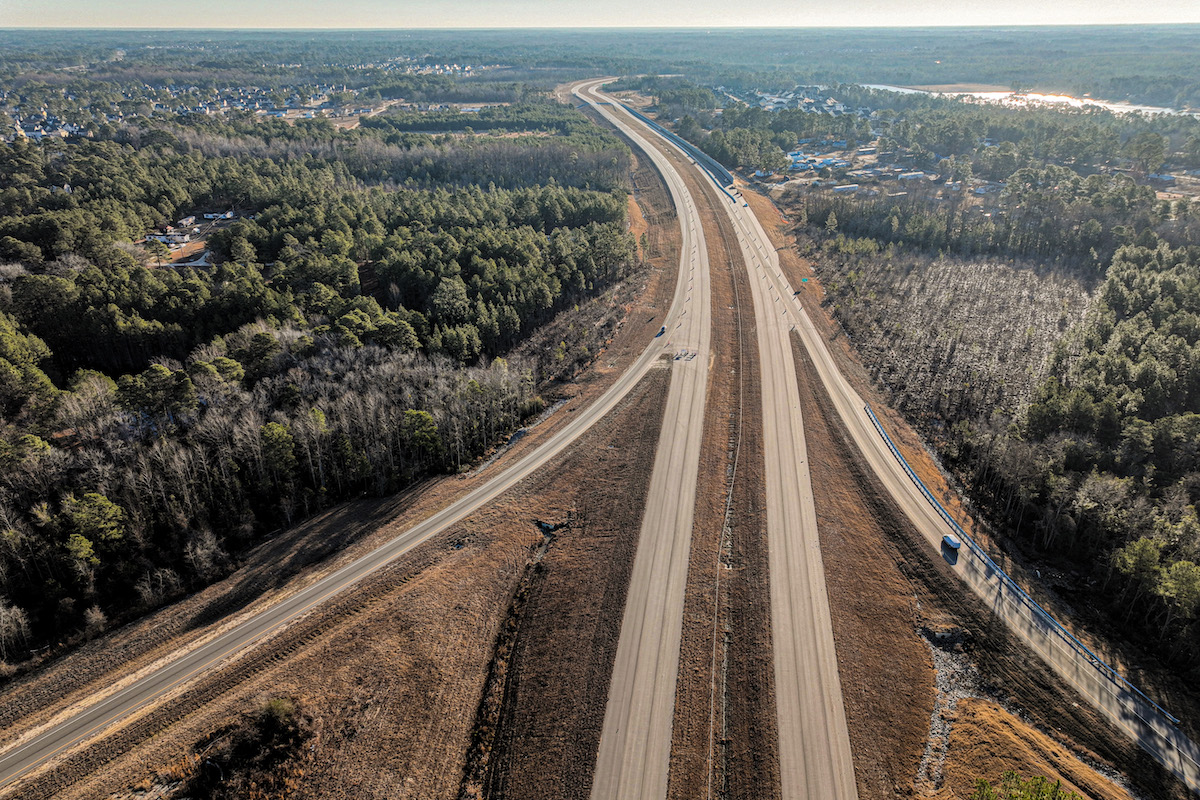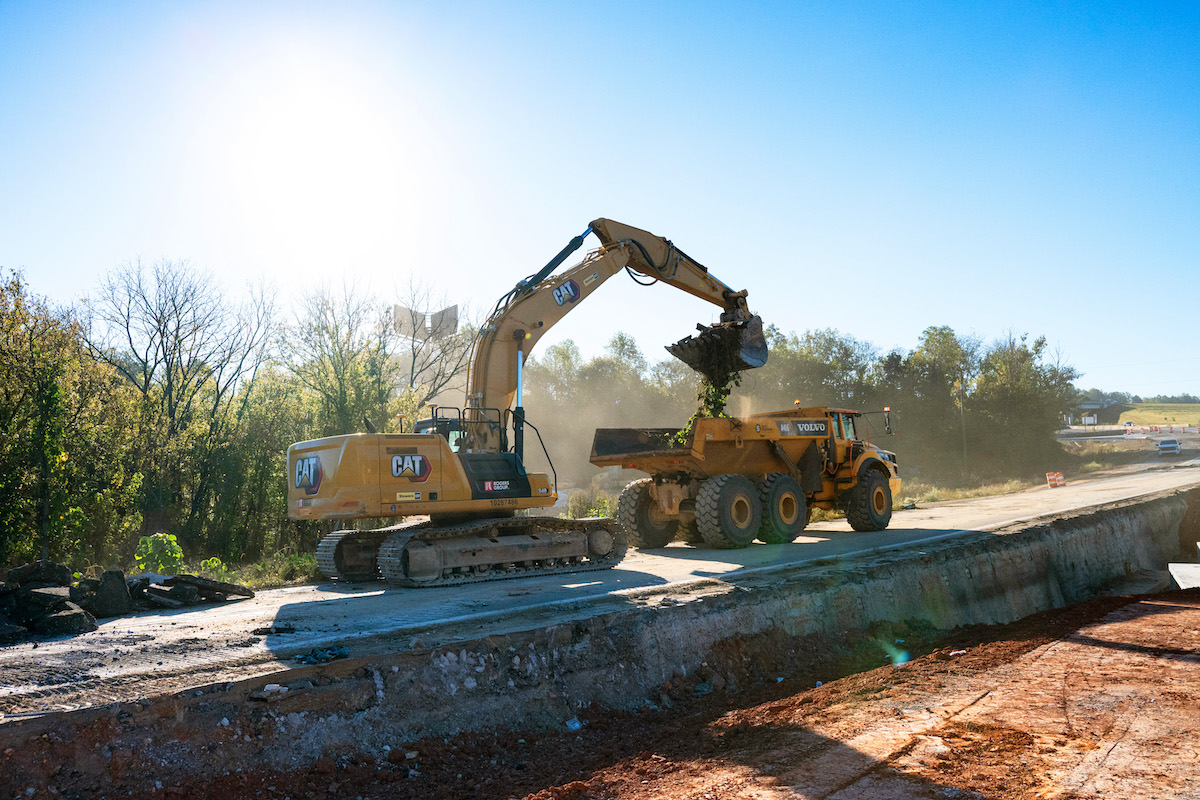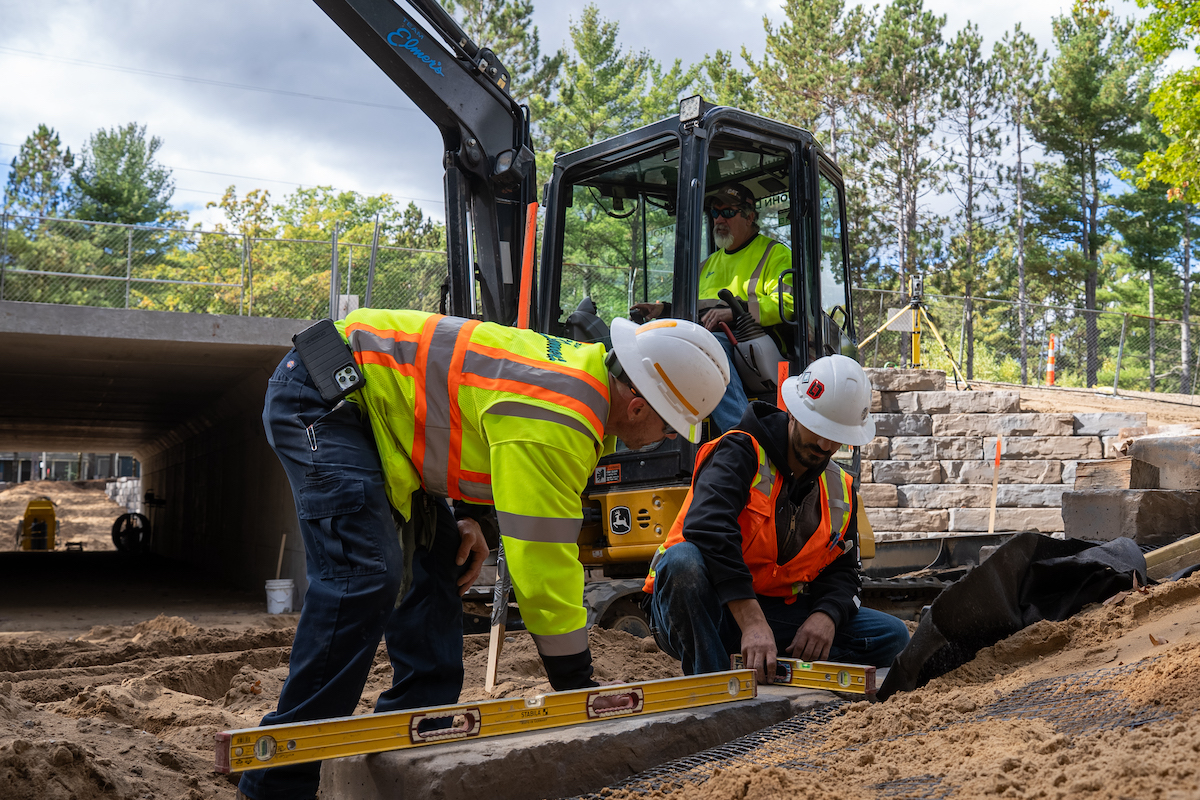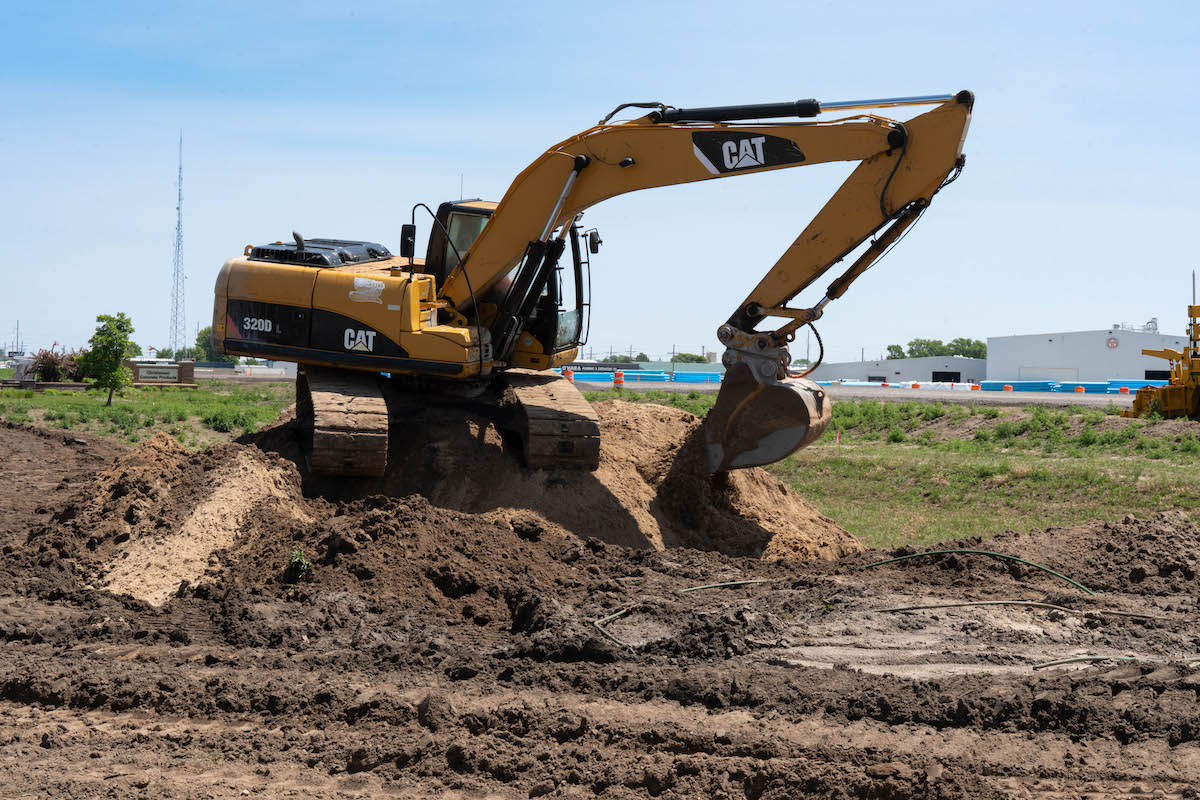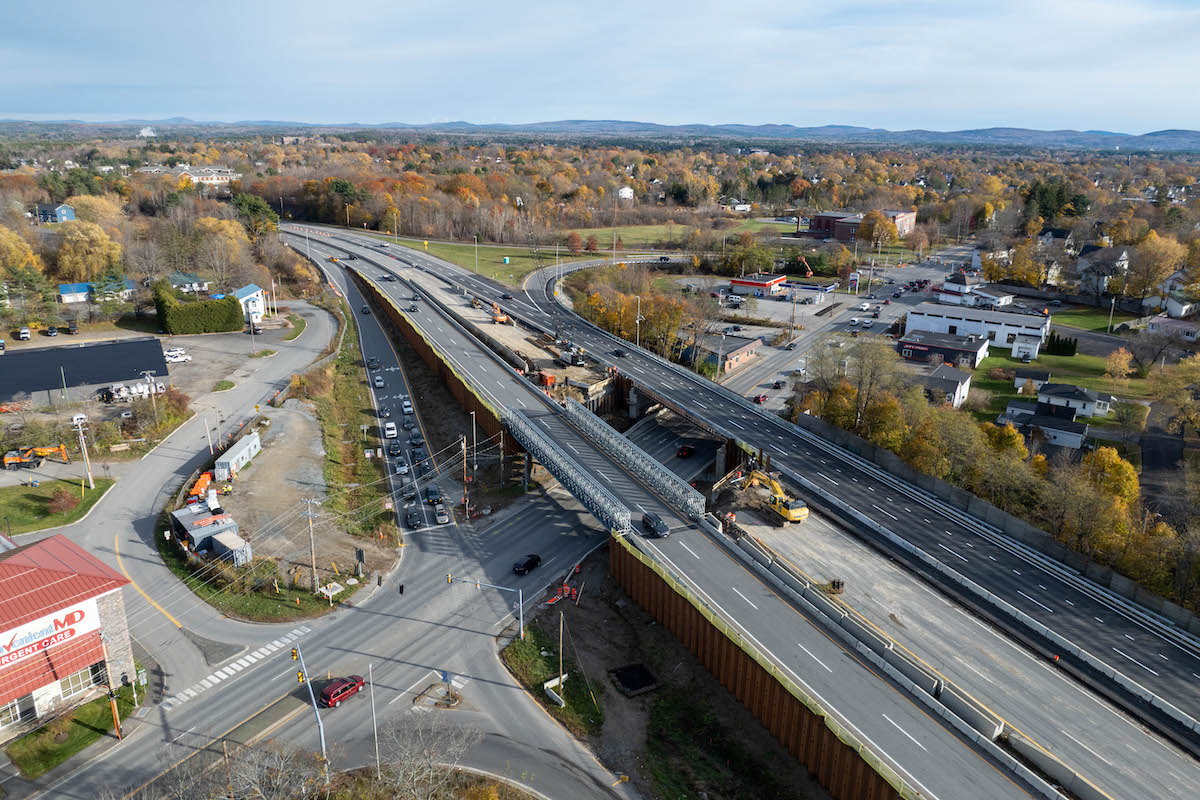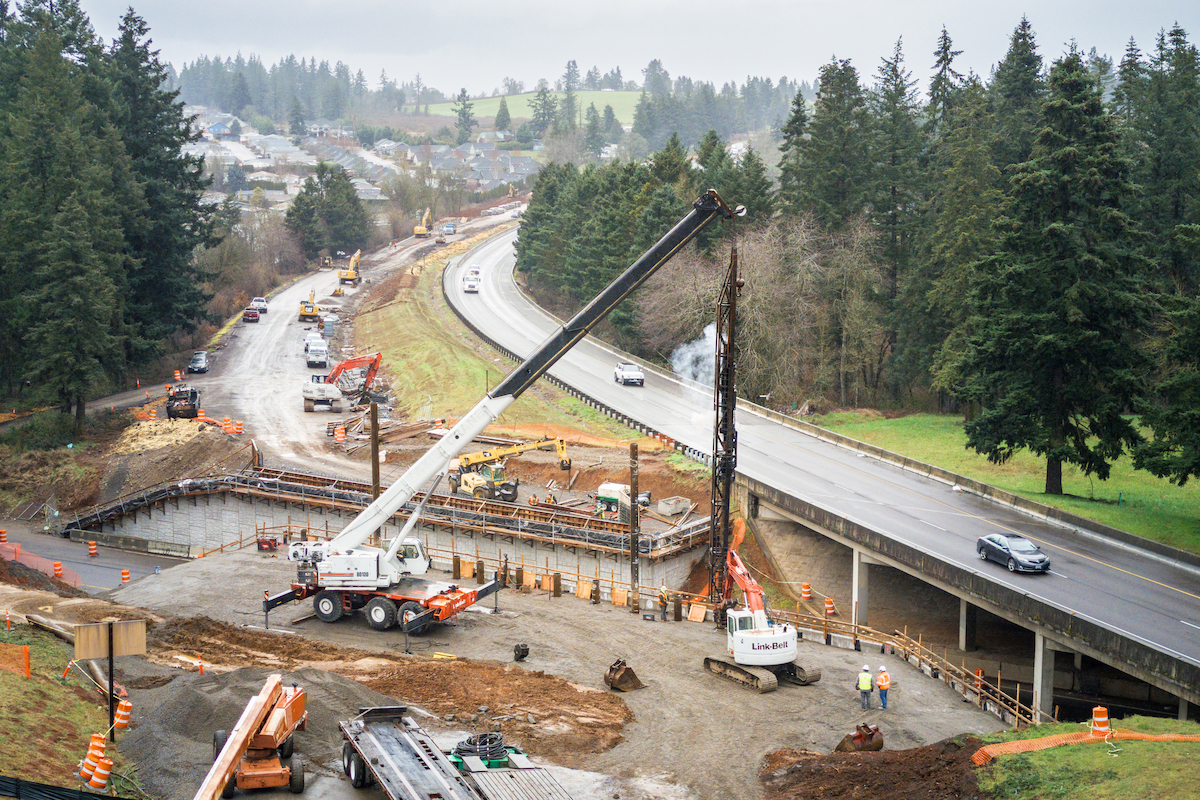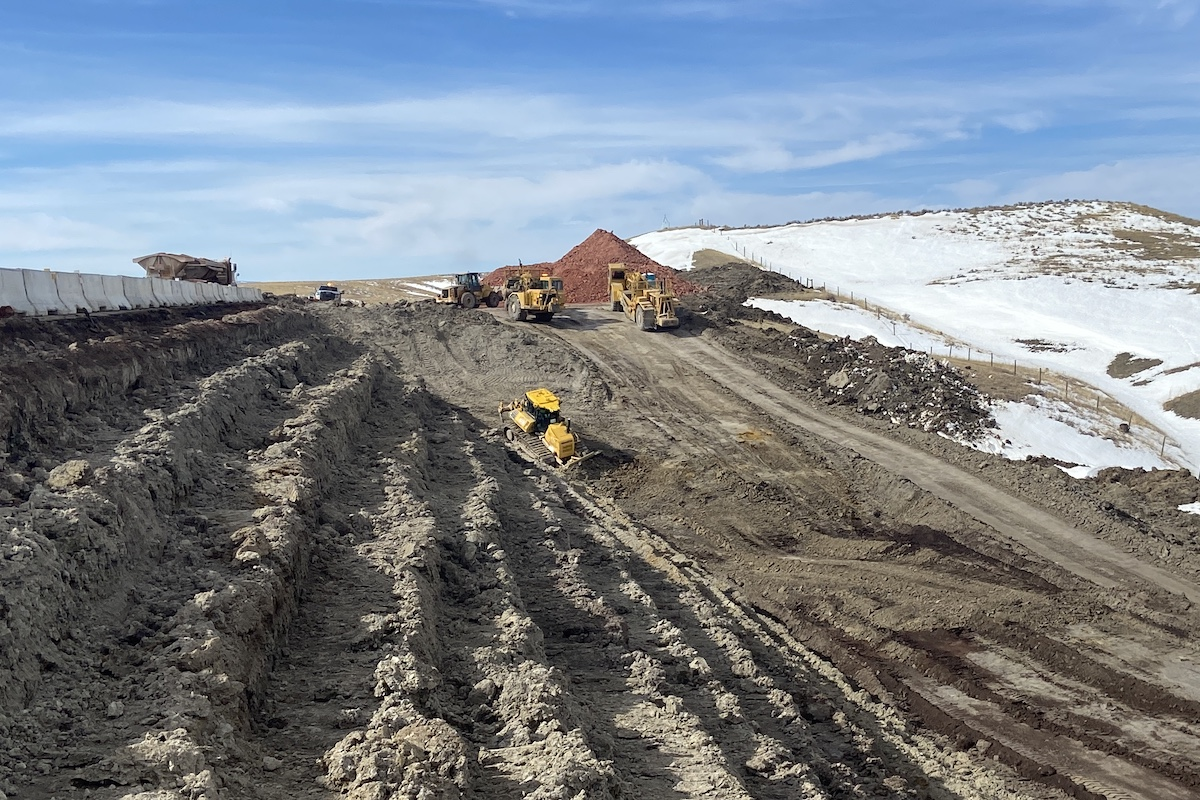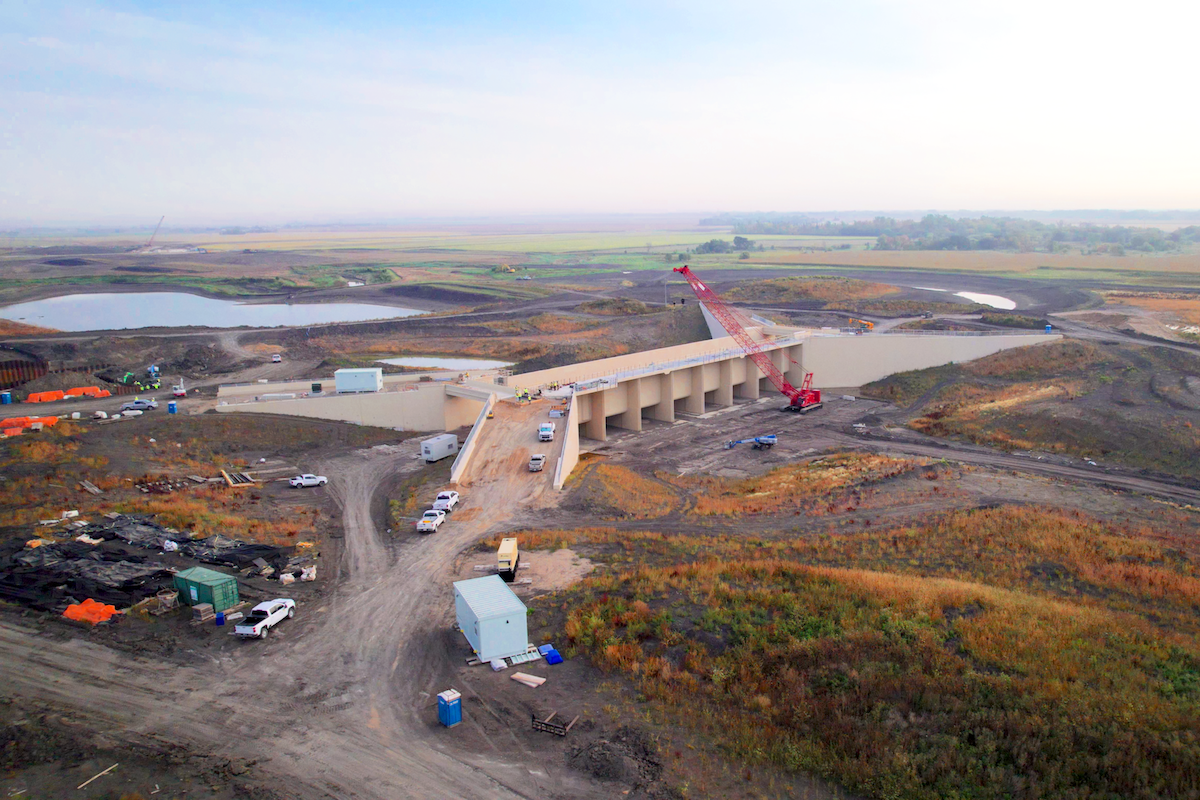Known as the Cherry Capital of the World, Traverse City, Michigan, is located at the southern tip of Grand Traverse Bay, which flows into Lake Michigan. The Michigan Department of Transportation (MDOT) and general contractor, Team Elmer’s, are rebuilding a 2-mile section of a major roadway in the scenic tourist town.
The people of Traverse City take cherries very seriously. Millions of pounds of cherries are grown annually in the region, but they do not stay there. According to Rove Winery’s website, the cherries “are shipped across the U.S. and exported to other countries. … Traverse City supplies 75 percent of the world’s tart cherries.”
The city hosts the National Cherry Festival, a weeklong event that brings in over 500,000 visitors to the area. There are also wineries in the vicinity.
A sizable number of people have second homes in and around Traverse City, so the majority of tourists come throughout the summer months.
U.S. 31/M-37/M-72 (Grandview Parkway/Front Street) was constructed in the 1950s. While the 2-mile section (and the surrounding areas) has undergone construction over the years, the current project is the first complete reconstruction since it was installed.
The 1950s vintage concrete was in dire need of replacement. During the winter, the concrete would heave, leaving bumps in the joints, and the surface on top would deteriorate.
“The project has been in the works for years,” said Jim Johnson, MDOT Traverse City Transportation Service Center Construction Engineer, “and we’re fortunate to get the funding to move forward with the reconstruct.”
As part of the complete reconstruction, the teams are doing hot mix asphalt (HMA) and concrete pavement removal, new sanitary services, watermain, storm sewer, 6 inches of aggregate base, 6.5 inches of HMA, concrete curb and gutter, sidewalk, and restoration.
The new design of this stretch included:
- Upgrading the size of the water line from 12 inches to 16 inches in diameter
- Installing environmental upgrades (stormwater hydrodynamic separator)
- Installing self-leveling castings
- Adding a second left turn lane on U.S. 31 at Division Street
- Adding a dedicated center-left turn lane between Front Street and the Delamar hotel
- Adding a left turn lane with a concrete median for safety on U.S. 31 at Peninsula Drive
- Extending the eastbound left turn lane at Garfield Avenue
- Reconfiguring the Front Street and Peninsula Drive intersections for safer turning movements
Finally, the team is repairing the Murchie Bridge over the Boardman River.
The project area was determined based on an engineering survey and the design center line of an existing roadway. The state owns the right of way through the project area. On the east end, there is a different pavement profile, and MDOT has plans to reconstruct the roadway beyond the west end in 2025. The project length also made sense, given the available funding.
The average daily traffic along this stretch of road ranges from 23,900 to 30,300. Maintenance of traffic was a concern for all the involved parties.
“We worked with MDOT and the City of Traverse City early on in the project to plan a detour route of segment 1 from Front Street to Garfield Avenue, which allowed us to expedite much of the difficult underground utility work that was originally planned/designed to be part width construction,” said Sean Sebela, Team Elmer’s Project Manager for this project.
Sebela said that truck traffic was rerouted south of town. Non-motorized traffic was also routed away from construction areas to maintain safety. The road remained open for eastbound traffic while westbound traffic was detoured to a nearby road.
“By implementing this detour, we were able to complete much of this work ahead of schedule while providing our crew members a safer work zone,” Sebela said.
The team was under the gun from the start. The project was scheduled to have two phases during the March to November 2024 construction season. Even while incorporating a planned break in construction, the team made the deadline and completed phase one eight days ahead of schedule.
“The planned break was to allow for unimpeded traffic flow through the downtown area during the National Cherry Festival, which began on June 29,” said Tonya Wildfong, Communications Director at Team Elmer’s.
While construction began in March 2024, the team did significant preparation during the fall of 2023 to plan for the detour. The work included installing temporary signals, temporary paving for detour road sections, and construction signing.
The team also used a 24-hour workday (two 12-hour shifts from 7 a.m. to 7 p.m. and from 7 p.m. to 7 a.m.) during demolition to expedite that section of work. The 24-hour workday was used during phase one in March and phase two in July. Besides hastening the project, the double shift had other benefits.
“With less traffic on the roadways during night hours, trucking cycle times were shorter, allowing more efficient removal,” Wildfong said.
MDOT utilized newer technology to overcome another challenge on the project. Team Elmer’s installed stormwater hydrodynamic separators.
“This 10-foot-diameter and 22-foot-deep system separates debris from the road surface stormwater drainage as it travels through the system,” Sebela said. “It allows debris to settle out prior to discharge into the area water table and lake, allowing for a cleaner environment.”
The contractor also used self-leveling castings. These are used for several reasons, including integrity, scheduling benefits, and rideability.
“Most catch basins are a single frame system with an inner steel cast lid mortared to the top of a catch basin,” Sebela said. “The road surface needs to be sawcut and hand-patched to meet grade after the paving is completed. This creates a butt joint and potential erosion point from the winter freeze/thaw cycle. With self-leveling casting during the grade sequence, the base section is mortared to the catch basin. The road surface is prepared for paving.
“During paving, the second part, the self-leveling casting insert, is adjusted during paving operations for each course, removing the need to saw cut and hand patch around traditional castings. With the gasketed self-leveling insert in place, operations continue. Construction time is saved, with no crew having to return to raise castings. It also improves the integrity of the road system by removing saw cuts and hand patching around castings.”
Another challenge was the discovery of materials that were unsuitable for construction. “We worked with the contractor to remove the old foundry sands,” Johnson said. “We adjusted the staging, so discovery didn’t impact the schedule.”
Team Elmer’s is based in Traverse City. “They’re in tune with the community,” Johnson said. “The project is in their backyard, so they want to make sure they get it done right/correctly.”
“The Parkway project was a perfect alignment with our ability to self-perform much of the work, supplying products made in house, including catch basin drainage structures, aggregate base, concrete ready-mix supply, and hot mix asphalt to name a few,” Sebela said.
The $27.1 million project is on budget. The bulk of the funding (65 percent) is federal, with the state (23 percent) and city (12 percent) also chipping in. Johnson credits the contractor, close monitoring, and the fact that there were no significant surprises or changes to the design plans as the reasons for keeping the project on budget.
The project is also on schedule thanks to the detour, the crew, and the support of area businesses, the public, and MDOT, according to Sebela. “We have a good team,” Johnson said. “Our weekly progress meetings help us adjust as needed.”
When the team completes the project, drivers will experience increased safety and improved road quality. The new medians will help pedestrians cross the street safely, as will the updated signals. Finally, bicyclists will see significant improvement, as the team worked with a local trail group to improve crossings.
- Owner: Michigan Department of Transportation; Project Engineer, Lucas Porath
- General Contractor: Team Elmer’s, Traverse City, Michigan
- Designer: AECOM, Dallas, Texas
- Other Key Contractors: Antigo Construction, Inc., Antigo, Wisconsin; Bella Concrete Construction, LLC, Houghton Lake, Michigan; Civil Coatings and Construction, Inc., Valparaiso, Indiana; G&J Site Solutions, Inc., Calumet, Michigan; Give 'em A Brake Safety, LLC, Traverse City, Michigan; Grand River Construction, Inc., Grand River, Michigan; Machin Engineering, Inc., Traverse City, Michigan; Northern A-1, Whitehall, Michigan; PK Contracting, LLC, Troy, Michigan; S. Hayes, Inc., Leroy, Michigan; Wright Electric Company, Inc., Marquette, Michigan

















